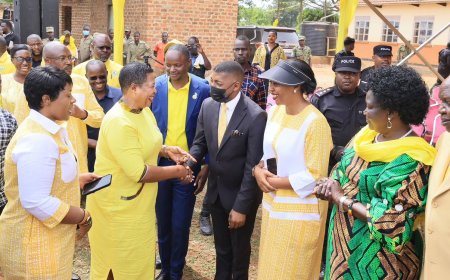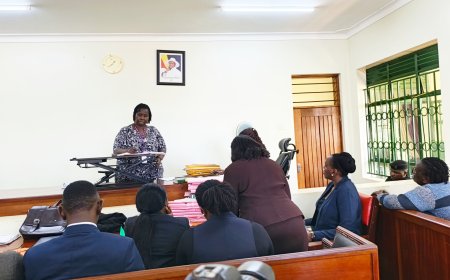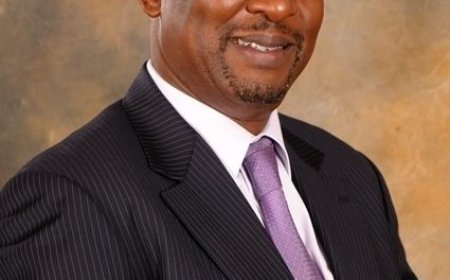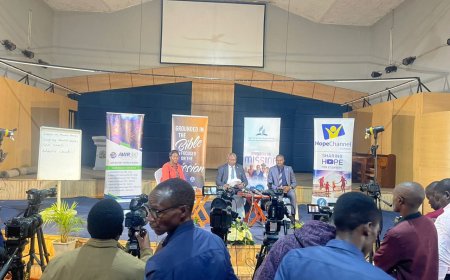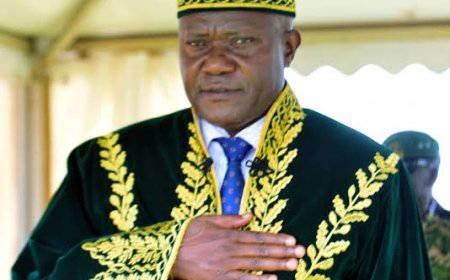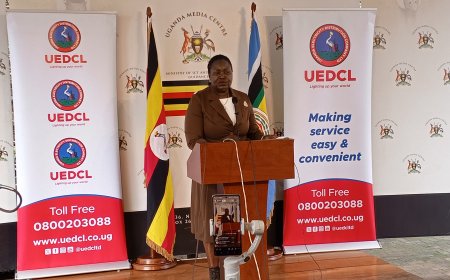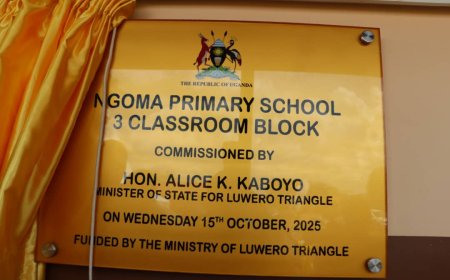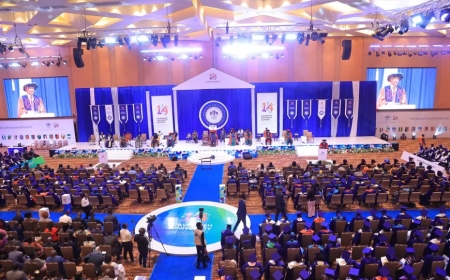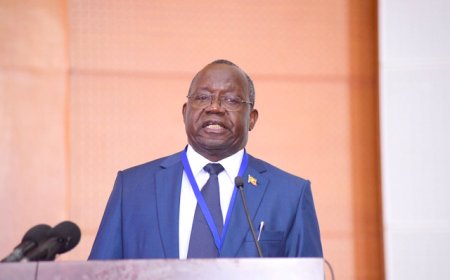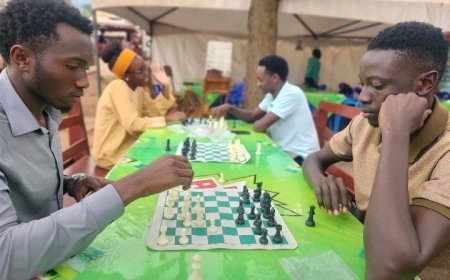UNEB Executive Director Outlines Security, Integrity Ahead of 2025 Exams
Speaking during the release, UNEB Executive Director, Mr. Dan N. Odongo, emphasized the Board’s commitment to security and holistic assessment under this year’s theme: “Embracing security and holistic assessment of learners in a dynamic environment.”
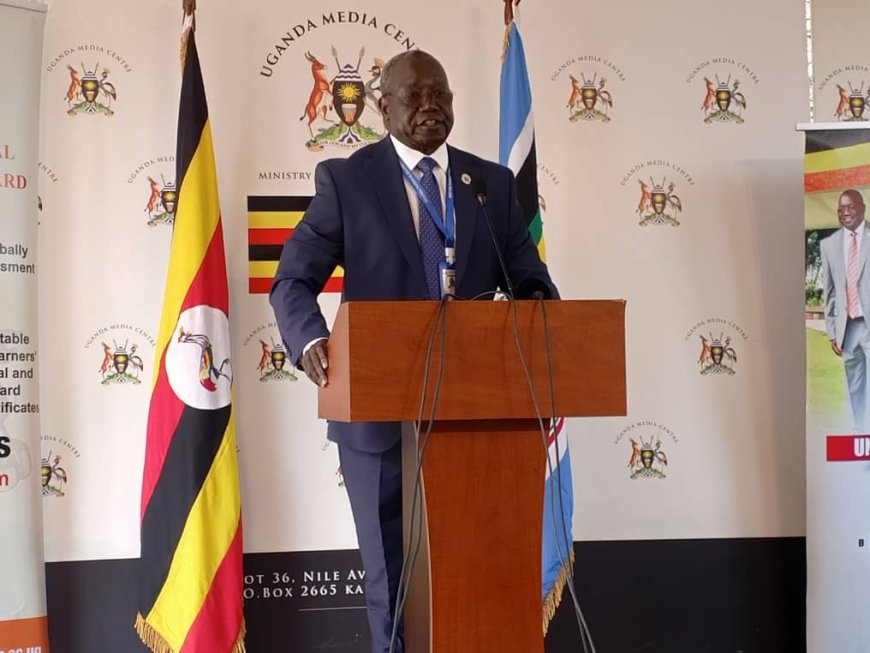
The Uganda National Examinations Board (UNEB) has officially released the timetable for the 2025 national examinations, covering the Primary Leaving Examination (PLE), the Uganda Certificate of Education (UCE), and the Uganda Advanced Certificate of Education (UACE).https://youtu.be/ZkWwJETLP-c?si=6j3xXPA3eLZbJ6t5
Speaking during the release, UNEB Executive Director, Mr. Dan N. Odongo, emphasized the Board’s commitment to security and holistic assessment under this year’s theme: “Embracing security and holistic assessment of learners in a dynamic environment.”
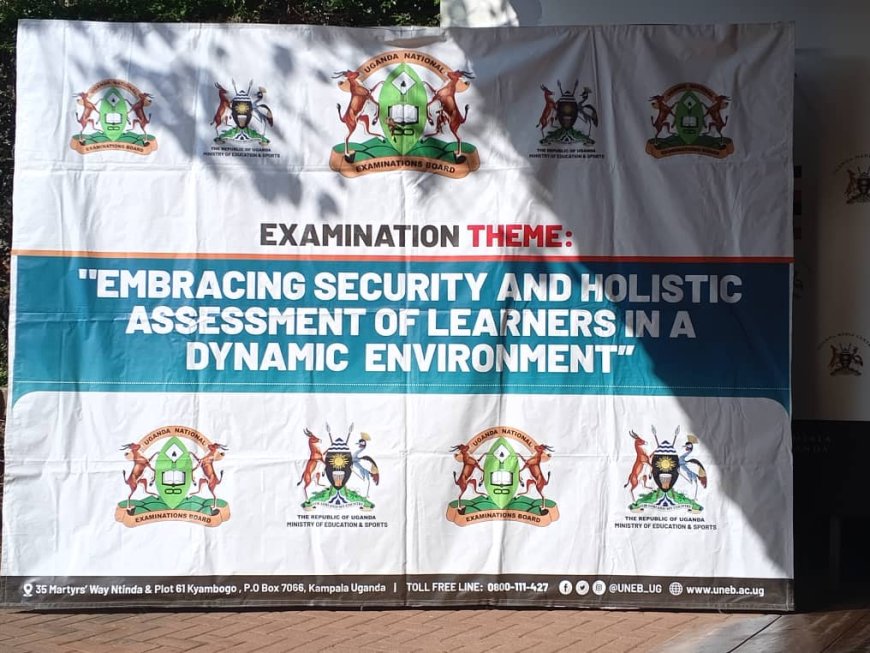
According to the timetable, the examinations will commence on Friday, October 10, 2025, with the briefing of UCE candidates, followed by PLE on Friday, October 31, and UACE on Friday, November 7. The examination series will run until Friday, December 5, 2025, marking the completion of the year’s assessment cycle.
Provisional Candidate Registration
Mr. Odongo revealed that a total of 1,416,468 candidates have registered for the 2025 examinations, representing a 7.5% increase compared to last year’s 1,308,998 candidates. Of these, 51.5% are females (729,117), while 48.5% are males (687,351).
Breakdown of candidature by level shows:
PLE: 818,010 candidates (389,596 boys, 428,414 girls), an increase of 2.5% from last year.
UCE: 432,025 candidates (204,141 boys, 227,884 girls), marking a 12.1% rise.
UACE: 166,433 candidates (93,614 boys, 72,819 girls), the highest increase at 14.7%.
Of the total candidature, 4,802 learners are Special Needs Education (SNE) candidates, an increase of 4.5% from 2024. Government will fund 719,016 candidates (51%) under Universal Education Programs, while 697,452 (49%) are privately sponsored.
Continuous Assessment Under the New Curriculum
The Executive Director reminded stakeholders that under the Competency-Based Curriculum, Continuous Assessment (CA) contributes 20% to the final learner achievement, while the End-of-Cycle examination contributes 80%, with project work graded independently.
Mr. Odongo confirmed that all UCE candidates successfully submitted their CA and Project Assessment scores at registration. He urged Heads of Centers to ensure that all Term II, Senior Four scores are submitted by September 30, 2025, warning that UNEB will not grade learners whose scores are missing.
Call for Integrity and Security
Reiterating the Board’s commitment to credibility, Mr. Odongo cautioned against malpractice, especially false reporting of SNE candidates. He noted that some Head Teachers misreport disabilities to unfairly secure extra time or transcribers for candidates.
“This habit not only gives unfair advantage to such candidates but also strains UNEB resources by increasing demand for interpreters and support staff. We strongly caution Heads of Centers to desist from these practices,” he stressed.
The Executive Director also warned candidates against indiscipline, reminding them that examination status does not exempt them from school rules. Parents were equally urged to guide their children during this critical period.
Accessibility and Preparation
UNEB confirmed that timetables can be accessed through school portals, hard copies distributed with stationery, and displayed on noticeboards. Braille versions for visually impaired candidates have also been provided.
To aid preparation, UNEB has released updated Question Bank booklets for PLE, UCE, and UACE, including 2024 past papers. Importantly, the first-ever Question Bank booklet for the new Lower Secondary Curriculum is now available, guiding candidates in mastering the scenario-based Competency-Based Assessment (CBA) format.
Maintaining the Theme
Mr. Odongo explained that UNEB decided to maintain last year’s theme, given its continued relevance: “Embracing security and holistic assessment of learners in a dynamic environment.” He stressed the need for safeguarding examination security, upholding integrity, and ensuring validity and reliability in assessment.
“Holistic assessment remains central, encompassing continu
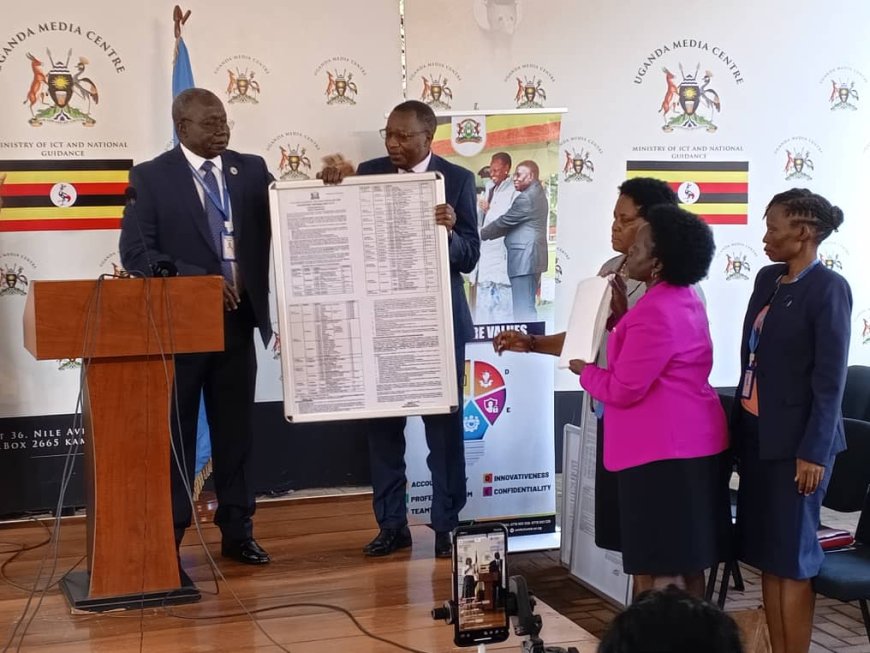
ous assessment, project work, and final examinations,” he noted.
As Uganda prepares for the 2025 national examinations, UNEB’s call is clear—integrity, security, and holistic learner evaluation must guide the process. With a record number of candidates registered, the emphasis on transparency, preparation, and proper guidance will be key to ensuring smooth examinations across the country.



